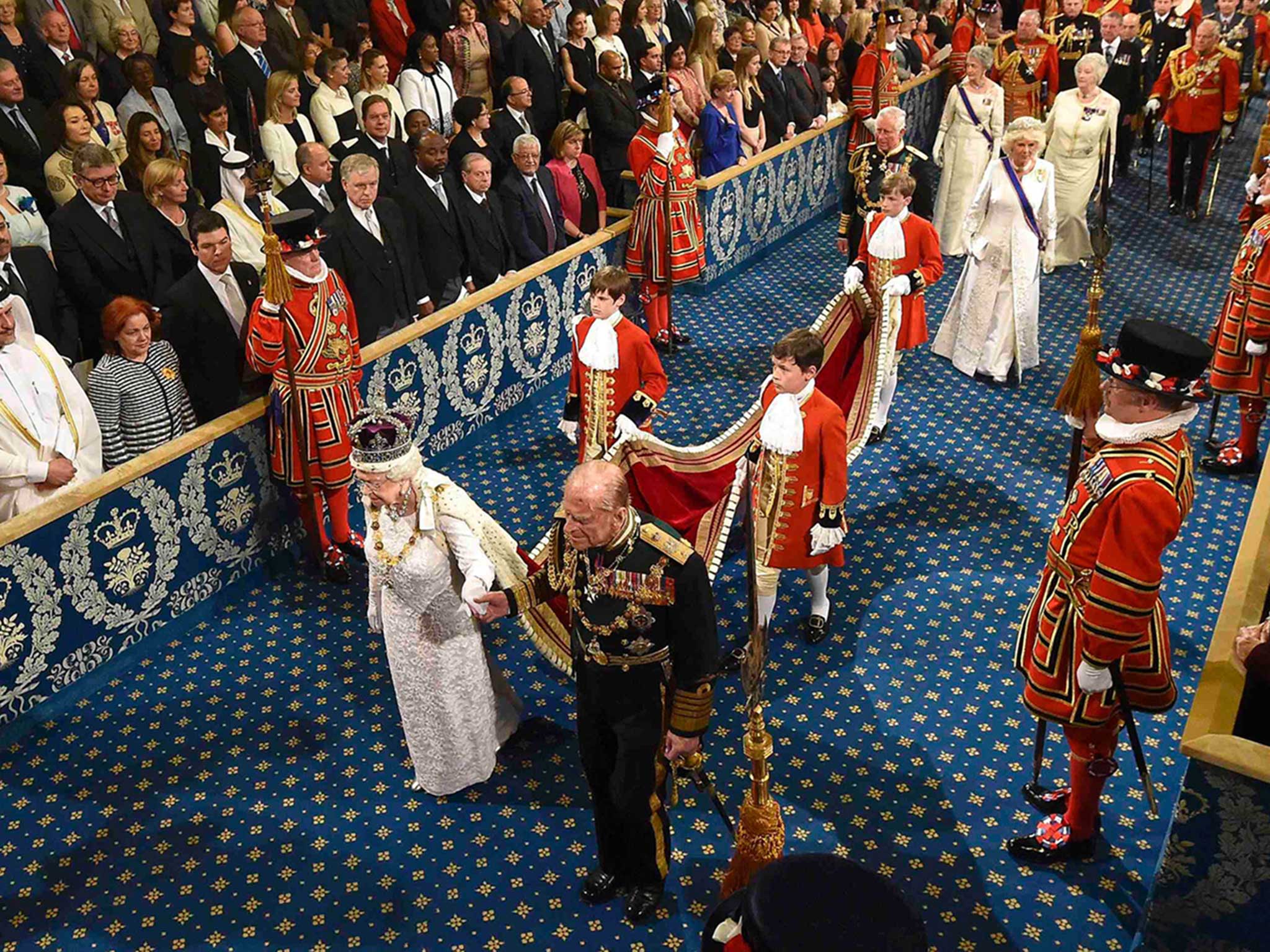This is the Queen's Speech that Cameron called too soon – and his 'One Nation' credentials will suffer for it
If Cameron survives his self-made scare, his list of Bills provides the bare bones of a Tory strategy in the political centre ground. But it will require a lot more flesh – and money – to turn the rhetoric into reality


When David Cameron decided to press ahead with the Queen’s Speech, rather than wait until after the EU referendum at the end of June, his allies hoped it would provide a brief ceasefire in the Conservative civil war over Europe.
Unfortunately for Cameron, the new parliamentary year coincided with the most explosive episode in the Tory saga, as Michael Heseltine warned Boris Johnson – his successor as MP for Henley – that his “preposterous, obscene” remarks in the referendum are damaging his prospects of becoming prime minister.
Lord Heseltine’s wounding attack cannot be dismissed as just another salvo from the pro-EU brigade. It reflects a belief which extends even to some Boris allies: that Johnson should have played the statesman, arguing that Brexit was better “on balance”, rather than go all guns blazing for an Out vote and failing to look a serious figure.
Heseltine’s spectacular move eclipsed Downing Street’s advance spinning of the Queen’s Speech. Ministers fielded for media interviews on it found themselves quizzed about the much sexier Hezza-Boris spat. The row blunted Cameron’s attempt to show he has another, non-EU agenda – that, after sorting out the economy, his “progressive, One Nation Conservative Government” will now boost the life chances of the most disadvantaged through ambitious social reforms.
With hindsight, it would have been better to stick to Plan A and delay the Queen’s Speech until after the referendum. If the public votes to leave the EU, then this legislative programme would be washed away by fraught negotiations on Britain’s exit terms.

So, too, would Cameron – sooner rather later. If he wins the referendum, he would swiftly reshuffle his Cabinet. The ministers who take through the Bills announced on Wednesday might well change, and so the Cabinet’s priorities might too.
This rather limp legislative package feels like one for the tail end of a Government rather than its second year, when it would normally be firing on all cylinders. Again, all roads lead to the Treaty of Rome.
Cameron could not afford to provoke his Europhobic backbenchers with controversial measures. Plenty of his MPs are already plotting to make parliamentary life hell for him if he wins the referendum, and his narrow majority could see him suffer the same fate as John Major in the 1990s – one he is desperate to avoid, after living through it as a political adviser.
A long-awaited Bill of Rights, promised in the Tories’ “first 100 days” if they won power last year, is still not cooked after 379 days because it mentions the E-word. Ministers appear in retreat over ditching the European Convention on Human Rights, but don’t want to admit that before the referendum.
The Prime Minister needs the support of non-Tory voters in the referendum, and so the Queen’s Speech focused on soft, cuddly stuff such as more help for children leaving care, reforming prisons and ensuring more children from poor families go to university.
If Cameron survives his self-made scare next month, his list of Bills provides the bare bones of a Tory strategy to occupy the political centre ground. But it will require a lot more flesh – and money– to turn the One Nation rhetoric into reality.
Giving prison governors more autonomy is sensible but the budget squeeze means that drug use, assaults and suicides will not ease unless fewer people are sent to prison. Both Labour and Tory governments have brought in sentencing guidelines that result in more people being sent to prison. Reoffending rates will remain high unless there is more investment in helping prisoners on their release.
The Higher Education and Research Bill will force universities to publish application and offer rates by gender, ethnicity and social background and compel Ucas to share anonymised data with researchers. These are welcome measures. However, the Government has dropped plans for the new Office for Students to ensure targets to widen access are hit. This will limit the pressure on institutions to meet Cameron’s goal to double admissions of students from poor families and to raise the number of black and ethnic minority students by 20 per cent.
A real push for greater social mobility would have included measures to encourage part-time and mature students, whose numbers are falling sharply. Maintenance grants will soon be replaced by even more loans, so some people will leave university with debts of more than £50,000, deterring some from disadvantaged families from going.
Plans to ensure that more children leaving care are adopted and to improve social work are all very well but will social services departments be given the resources when local authorities bear the biggest burden in the decade of austerity?
The Queen’s Speech wills the ends but not the means. Cameron hopes it will be part of his legacy when he departs in 2019. But the referendum cloud hanging over him is a reminder that the only thing he might be remembered for is accidentally leading us out of the EU.
Join our commenting forum
Join thought-provoking conversations, follow other Independent readers and see their replies
Comments
Bookmark popover
Removed from bookmarks